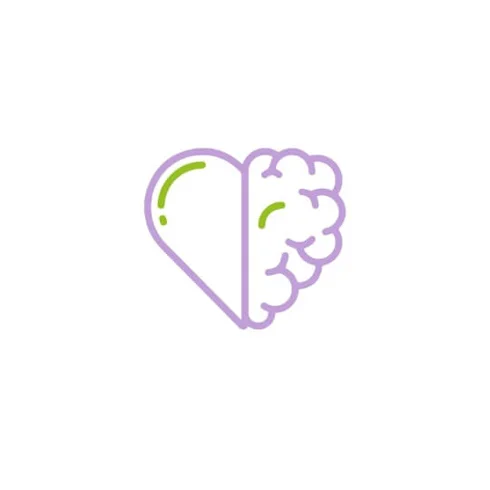Severely limiting food and drink, preoccupation with weight and shape, fear of weight gain. Distorted body image (body dysmorphia). Increased activity, exercise, purging, use of laxatives and/or diuretics.
Supporting a child with an eating problem
Guidance for parents and carers
If your child is experiencing difficulties with eating or has been diagnosed with an eating disorder, it can be worrying, isolating and distressing for you as a parent or carer.
Here you’ll find knowledge and skills to support your child from expert mental health trainers, Jenny Langley and Ros Rea. We hope it reassures you that you are not alone and gives you hope that people do recover from an eating disorder.
If you would find it helpful to have this information in a booklet, you can download it as a pdf or order a hard copy.
Understanding eating problems
Eating problems can have many physical and psychological signs, for example:

Behavioural
Eating too little or too much, exercising excessively, counting calories, being irritable, angry, tearful or anxious. Avoiding social situations, withdrawing, socially isolating or being secretive around food or meals.

Physical
Rapid weight loss, no energy, difficulty sleeping, low heart rate and/or blood pressure, dizziness or fainting, palpitations, dental erosion, changes in menstrual cycle.

Cognitive
Struggling to concentrate: brain function is affected which impacts on attention, memory and processing information.

Psychological
Feeling your self-worth and self-esteem depend on body shape and weight, being rule-driven, feeling out of control.
Nine truths about eating disorders
It can be difficult to understand why people develop an eating disorder. Although we don’t fully understand what causes them, there can be biological, genetic, psychological, behavioural and social-cultural factors.
We do know that eating disorders are often about feelings which can adversely affect food intake. They may also be a way of coping with feeling out of control.
- Many people with eating disorders look healthy yet may be extremely ill.
- Families are not to blame and can be the person’s best support in recovery.
- An eating disorder diagnosis is a health crisis that disrupts personal and family functioning.
- Eating disorders are not choices, but serious biologically influenced illnesses.
- Eating disorders affect people of all genders, ages, races, ethnicities, body shapes and weights, sexual orientations and socioeconomic status.
- Eating disorders carry an increased risk for both suicide and medical complications.
- Genes and environment play important roles in the development of eating disorders.
- Genes alone do not predict who will develop eating disorders.
- Full recovery from an eating disorder is possible. Early detection and intervention are important.
How to spot signs of an eating problem
There are often signs that your child may have an eating problem. Spot the signs using the ABCDE framework:
Absence: A child with an eating problem may not show up for food-related activities.
Body: They may worry obsessively about the shape of their body.
Control: They may be compulsively in control, or out of control, of food.
Diet: They might radically change their diet.
Exercise: They may exercise excessively or obsessively.
The impact of eating disorders
Eating disorders can have a significant impact on day-to-day life – both for the person with the eating disorder and for their parents, carers, siblings and other family members.
If your loved one is starved, this can have a physical impact upon their brain. Their memory, concentration and ability to process things change as the white matter, the part of the brain that helps the body process information, shrinks.
Eating disorders can have a significant impact, both physically and psychologically. If physical risk is a concern, medical monitoring is essential, please seek medical help immediately via your GP, A&E, or 111. Trust your instincts as a parent or carer and act on them.
You should have your loved one assessed urgently if they show any of the following:
- Very low weight: percentage median Body Mass Index less than 70% (approx. below 0.4th BMI centile). Check with a GP or eating disorders service for an accurate measurement.
- Recent loss of 1kg or more for two consecutive weeks in an undernourished person.
- Rapid weight loss in someone of any weight.
- Little or no nutrition for over five days.
- Acute food refusal or less than 500kcals a day for more than two days.
- Physical struggles with carers over nutrition.
- Fluid refusal or signs of dehydration.
- Heart rate below 40 beats per minute.
- Core temperature below 35 C.
- Excessive exercise (more than two hours a day).
- Daily purging.
- Self-harm.
- Thoughts of suicide and/or intent to act on these thoughts.
Golden guidelines for carers
- Remember your loved one is ill.
- Look after yourself first.
- Remember that the eating disorder has a purpose – perhaps offering a sense of control or identity.
- Try not to focus all your attention on the eating disorder behaviours.
- Don’t try to ‘fix’ your loved one.
- Support your loved one.
What can you do ‘in the moment’?
It can feel really tough to stay supportive when your loved one has an eating problem.
Here are some things which parents and carers find useful:
- Offer lots of affirmation and validate their feelings where you can.
- Try to stay calm and acknowledge the difficulties.
- Use language that is supportive: “I can see that you’re…”
- Give more attention to the behaviours you like and less attention to those you don’t like.
Free skills workshops for parents and carers
Workshops for anyone caring for a loved one with an eating disorder.
We deliver fully funded workshops for parents and carers supporting a loved one with an eating disorder. The five-week course consists of a weekly two-hour workshop full of practical tips, real life scenarios and case studies. It is delivered by our trained facilitators.
The course is based on the New Maudsley Approach, which aims to lower anxiety and distress in family members. It gives carers communication tools, skills and techniques that help them engage their loved one to improve their self-esteem and develop the resilience to embark on change.